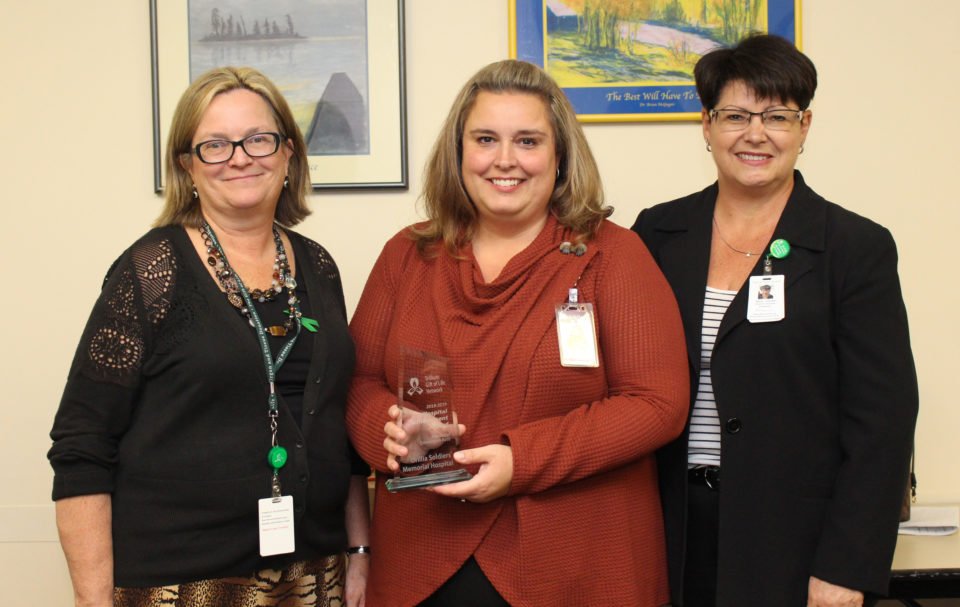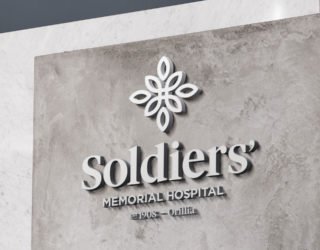Orillia Soldiers’ Memorial Hospital Awarded for Championing Organ and Tissue Donation

Orillia Soldiers’ Memorial Hospital (OSMH) was recognized by Trillium Gift of Life Network, Ontario’s organ and tissue donation and transplantation agency, for its outstanding efforts to integrate organ and tissue donation into quality end-of-life care in 2018/19.
OSMH was presented with the Provincial Conversion Rate Award for meeting or exceeding the target conversion rate of 63 per cent set by Trillium Gift of Life Network. The conversion rate is the percentage of potential organ donors (patients who die in a hospital setting and are deemed medically suitable for donation) who went on to become actual donors.
“We are very thrilled and honoured at OSMH to receive this honour for the third time,” said Jill Colin, OSMH’s Chief Nursing Executive “Each year we work hard to encourage our community to sign up to be organ donors.”
OSMH is one of 30 hospitals and four community partners to be awarded a 2018/19 Trillium Gift of Life Network Achievement Award.
“OSMH is an outstanding example of how applying leading donation practices can save lives,” says Ronnie Gavsie, President and CEO, Trillium Gift of Life Network. “The award is a reflection of the culture of donation established at OSMH and a reminder of the work that we still need to do in other communities across Ontario. We will not be complacent.”
Today, more than 1,600 people in Ontario are on the waitlist for a lifesaving organ transplant, and every three days someone will die without one. While the majority of Canadians support donation only 34 per cent of Ontarians have formally registered their consent for organ and tissue donation.
Some people believe that their age or medical condition prevents them from being a donor. In actuality, age does not preclude someone from becoming a donor, and each potential donor is assessed at the time of death for medical suitability. Others may not have registered under the misguided assumption that doctors won’t work hard to save a life if that patient is a registered donor, but in fact, the priority is always to save a life. Donation is only considered after all lifesaving efforts are exhausted, there is no chance of recovery, and the family accepts the diagnosis of death.
Visit BeADonor.ca to register or find out more.
-
Letter to the Community - July 18, 2024 Although the lazy days of summer have begun, it is anything but at Orillia Soldiers’ Memorial Hospital. ...
![Letter to the Community - July 18, 2024]()
-
OSMH welcomes new Chair and 3 new Directors as hospital recounts highly successful 2023/24 at Fireside Chat (Orillia, ON) – Lawre Pietras is beginning his 7th year on the Orillia Soldiers’ Memorial Hospital (OSMH) ...
![OSMH welcomes new Chair and 3 new Directors as hospital recounts highly successful 2023/24 at Fireside Chat]()
-
2023-2024 Annual Report to the Community: June 27th Fireside Chat https://youtu.be/LMiPr6pfn4M Public invited to attend community engagement session in person or online As part of ...
![2023-2024 Annual Report to the Community: June 27th Fireside Chat]()


